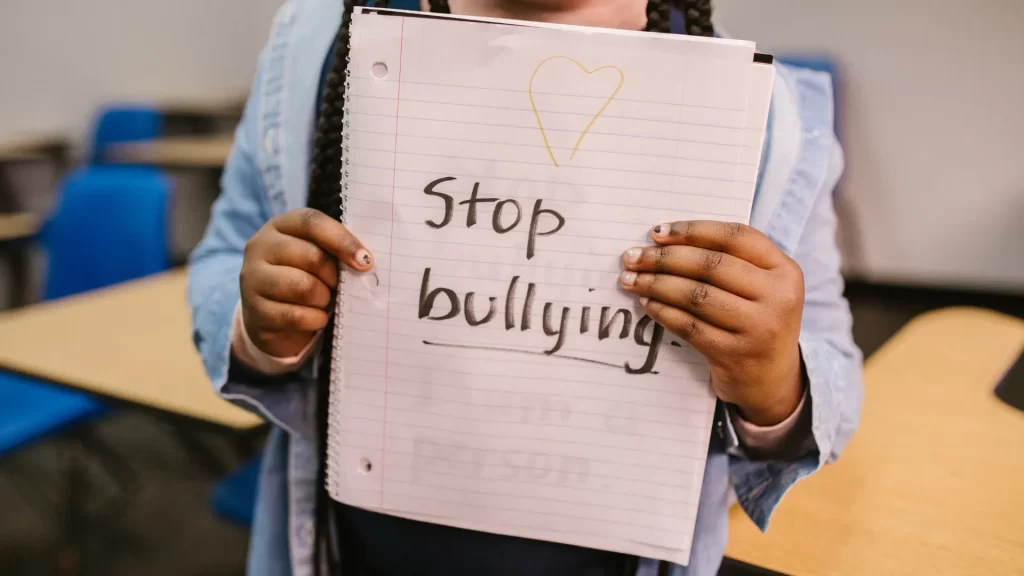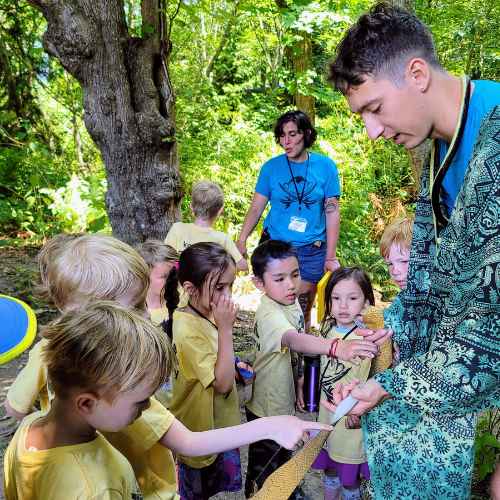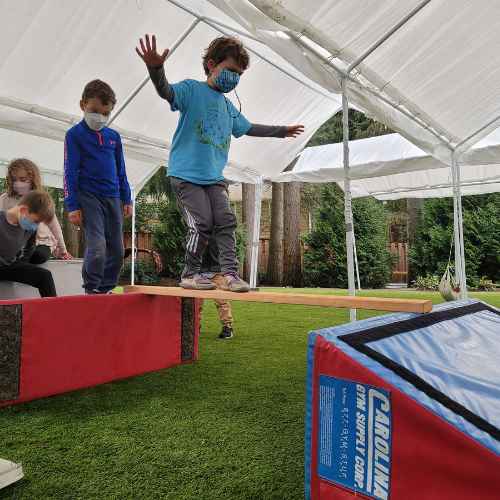
October’s cool breeze brings with it the vibrant changes of fall and an important reminder: it’s Bullying Prevention Month. This period isn’t just about acknowledging the existence of bullying but empowering our children with the courage, kindness, and assertiveness needed to navigate such challenges that WILL happen in their lives.
Understanding Bullying
Bullying extends beyond sporadic conflicts or disagreements. It’s a persistent pattern of harmful behaviors targeted at a particular individual over time. Dr. Dan Olweus, a pioneer in bullying research, describes bullying in a school environment as a situation where a student experiences repeated negative actions from peers. It’s a pattern that might include exclusion, rumor-spreading, mocking, and even physical harm. By recognizing these patterns, we take the first step towards effective intervention and prevention.
Empowerment in Action
Children are often unsure how to respond to bullying. Rather than intervening directly, our role is to equip them with the skills to independently manage these difficult situations. Educational psychologist and author Dr. Michele Borba, an educational psychologist and author, emphasizes the importance of teaching kids to be assertive, standing up for themselves without being aggressive. This is how we empower our children to grow up strong.
Ways to Foster Self Empowerment
- Role-Playing Scenarios:
Engage in role-play exercises with your child that simulate potential or current bullying situations, such as they are cut in line or being called mean names. Then teach them ways they could respond, words they could use, and tones they could adopt. Words like “NO” and “STOP” with a firm tone can be a empowering tool. Practice with your child how to be assertive and how to use a tone that is firm and direct. - Assertiveness with Kindness:
Encourage them to stand up for themselves respectfully. Assertiveness and kindness are not mutually exclusive. Teach your child this by instructing them not to be like the bully (e.g. not calling them mean names in return). We can also teach them to add words like, “excuse me” or “please” into how they address their bully. - Seeking Help When Needed:
While it’s important to encourage our kids to handle situations independently, they should also know when and how to seek help from adults. The 2 times we do this is- When they feel unsafe, they should seek immediate assistance.
- if they already tried to solve the problem and it’s not showing any effect, they need to include an adult for help.
The Habit of Self-Reflection
When your child comes to you about a bullying incident, resist the immediate problem-solving mode and Instead ask, “What did you choose to do about it?” This question doesn’t pass judgment or demand a ‘correct’ response but encourages reflection on their actions and consequences.
Dr. Laura Markham emphasizes that helping kids engage in problem-solving fosters a sense of personal responsibility and capability. They start to see themselves as the architects of their solutions, which is empowering.
This October, being Bullying Prevention Month, let’s set out to cultivate resilience and empathy in our children. By empowering them to handle their social adversities, we’re not just preparing them for the playground but for the world.
Share with us – how do you plan to encourage strength and kindness in your child?
Here’s to raising a generation of kind, brave, and resilient individuals!
GET Access to the ULTIMATE PLAY DATE PACKAGE (Value: $49) for FREE!


7-Day Crystal Shard Adventure
Unleash your child’s potential with our 7-day crystal shard movement adventure!


